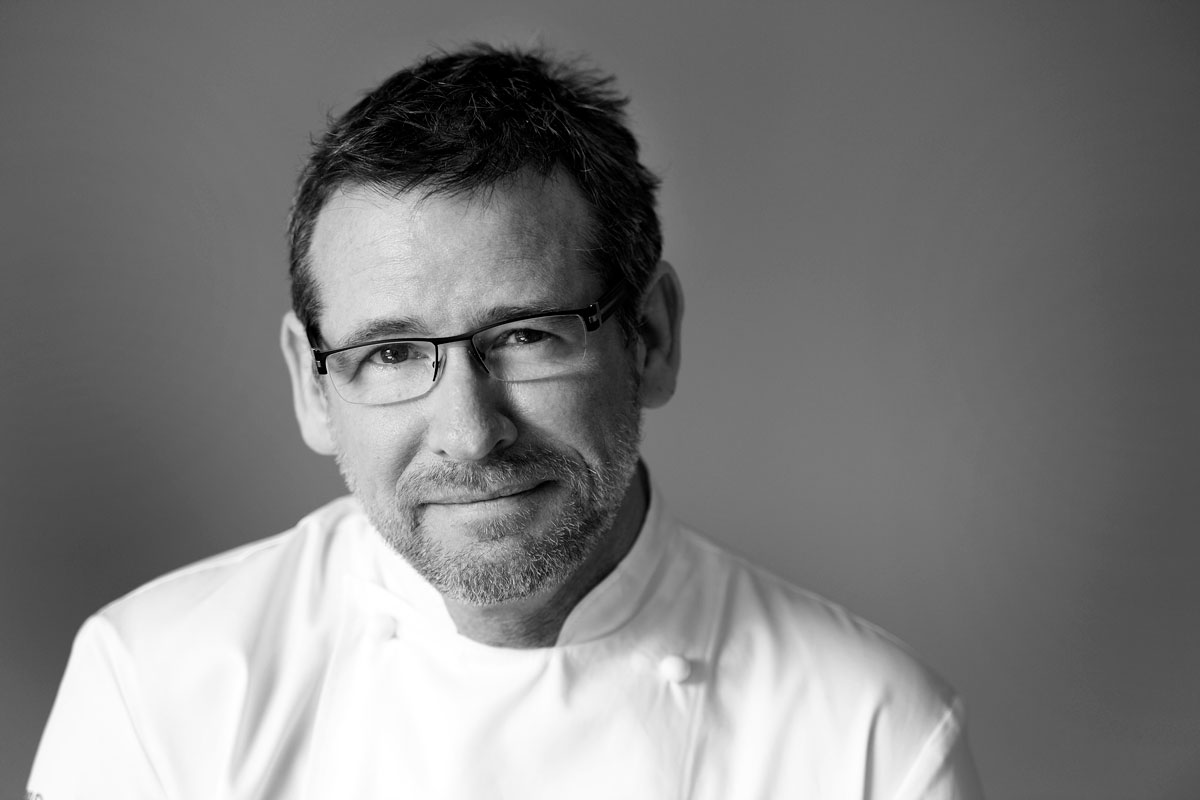
By Dave Hunter
A huge number of Scottish eateries have come and gone since SLTN first graced bars and tabletops in 1964, but over the past two decades and more, one name has set the standard in Scottish fine dining: Restaurant Andrew Fairlie.
The two Michelin Star restaurant, opened by the late Scottish chef and his team at Gleneagles in 2001, has spent over two decades at the top tier of food, wine and service.
The crack team hired to open the venue included chef Stevie McLaughlin, front of house manager Dale Dewsbury and sommelier Johnny Walker – all three of whom had worked with Fairlie at One Devonshire Gardens in Glasgow prior to the opening of the new venture.
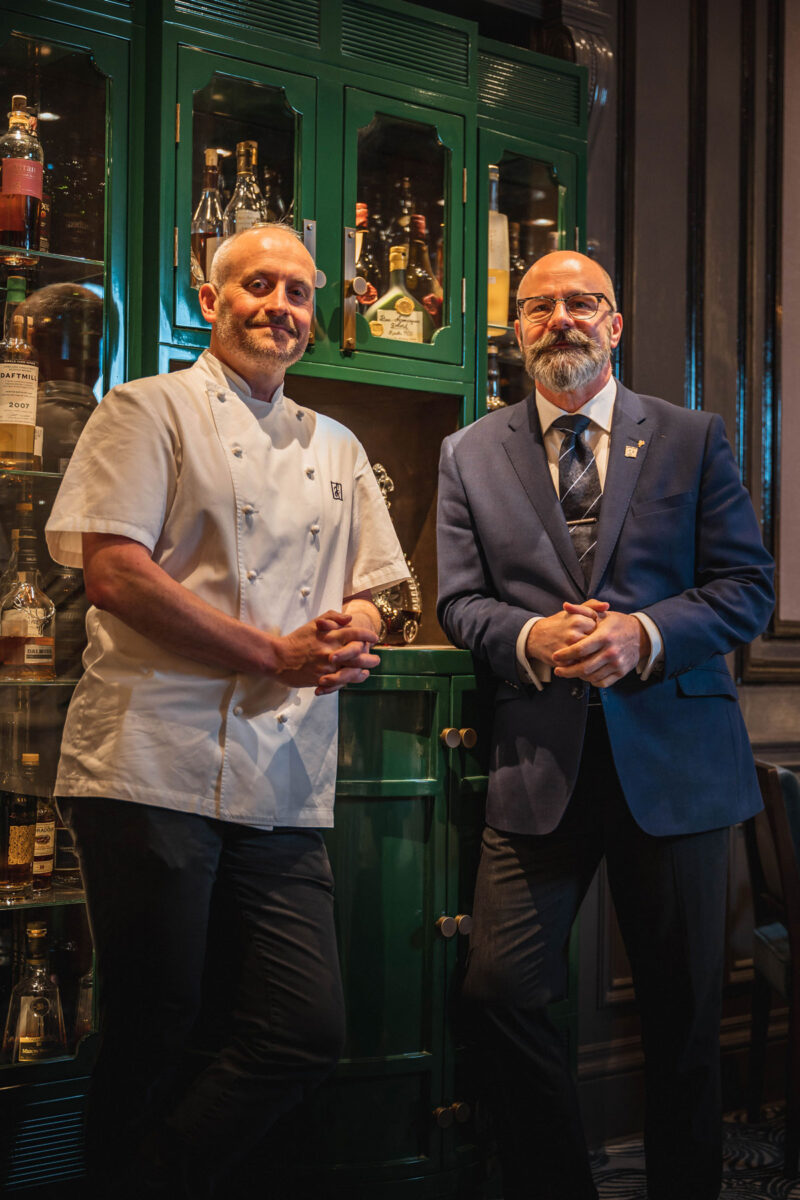
Dewsbury and McLaughlin remain at Restaurant Andrew Fairlie in 2024, as restaurant general manager and head chef, respectively.
“Andrew had a much more complete understanding of the restaurant experience.”
Despite its subsequent success, the creation of the restaurant wasn’t straightforward.
In 2001, the idea of the ‘Michelin Star restaurant’ was in the ascendant. Gleneagles – at the time owned by Diageo – was keen to establish a destination fine dining restaurant as part of its offer. It had the space, all it needed was the right chef and the right team.
At the time, Andrew Fairlie was cooking at Glasgow’s One Devonshire Gardens, where he had secured the restaurant a much sought-after Michelin Star.
Gleneagles approached him to run the hotel’s fine dining restaurant as an in-house chef. Fairlie declined. They approached him again. Again, he said no.
Determined to get their man, the hotel made Andrew an offer he couldn’t refuse: come to Gleneagles and set up your own fine dining restaurant. Your own business, set within the Gleneagles property.
This time, the offer was too good to pass up.
Speaking to SLTN, Dale said the goal from the outset was to create ‘something world class’.
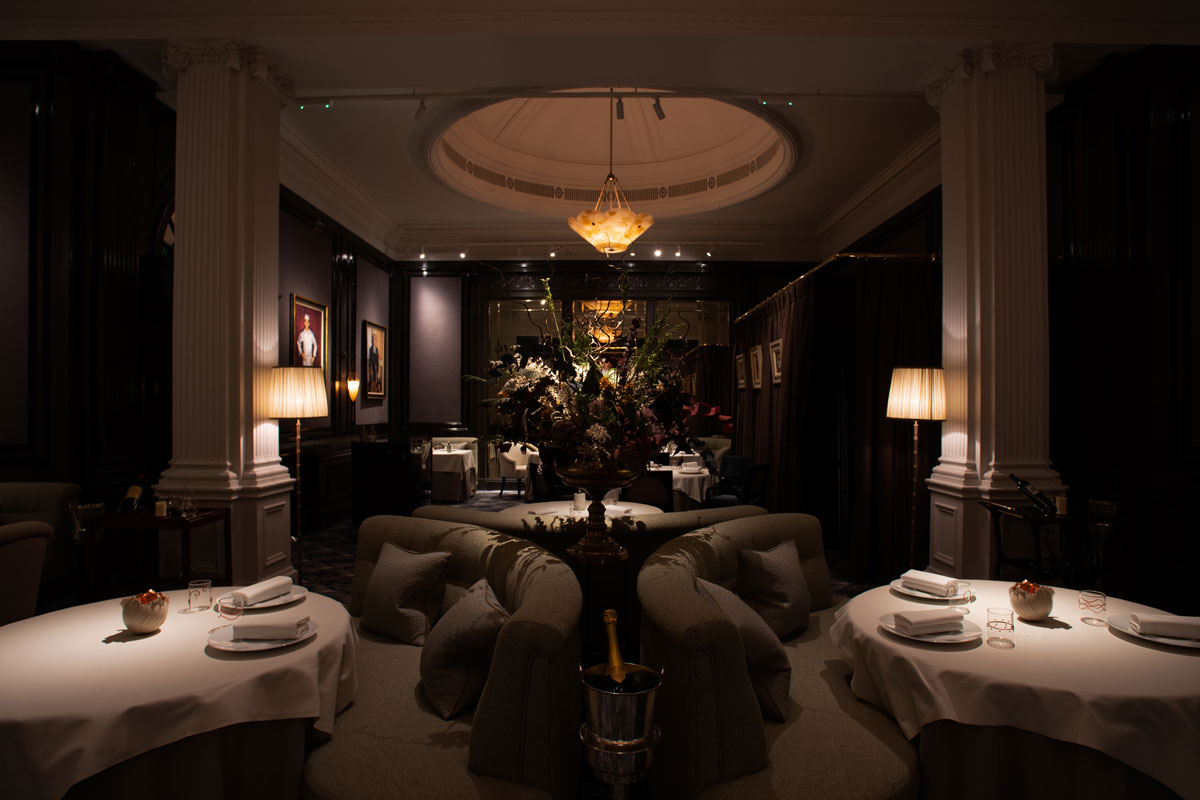
Inspired by his time working with French chef Michel Guérard, Andrew was keen to establish a restaurant offering outstanding food and excellent service.
“A continuous reference point for us was the food of Michel Guérard,” said Dale. “Brilliant food, simply done. And that resonated with us, constantly.”
And Andrew had a very definite idea of the kind of service and environment he wanted his restaurant to have.
“Most of the chefs I had worked with, they liked working with me because I looked after their food,” said Dale.
“When it left the hot plate they knew it was in safe hands.
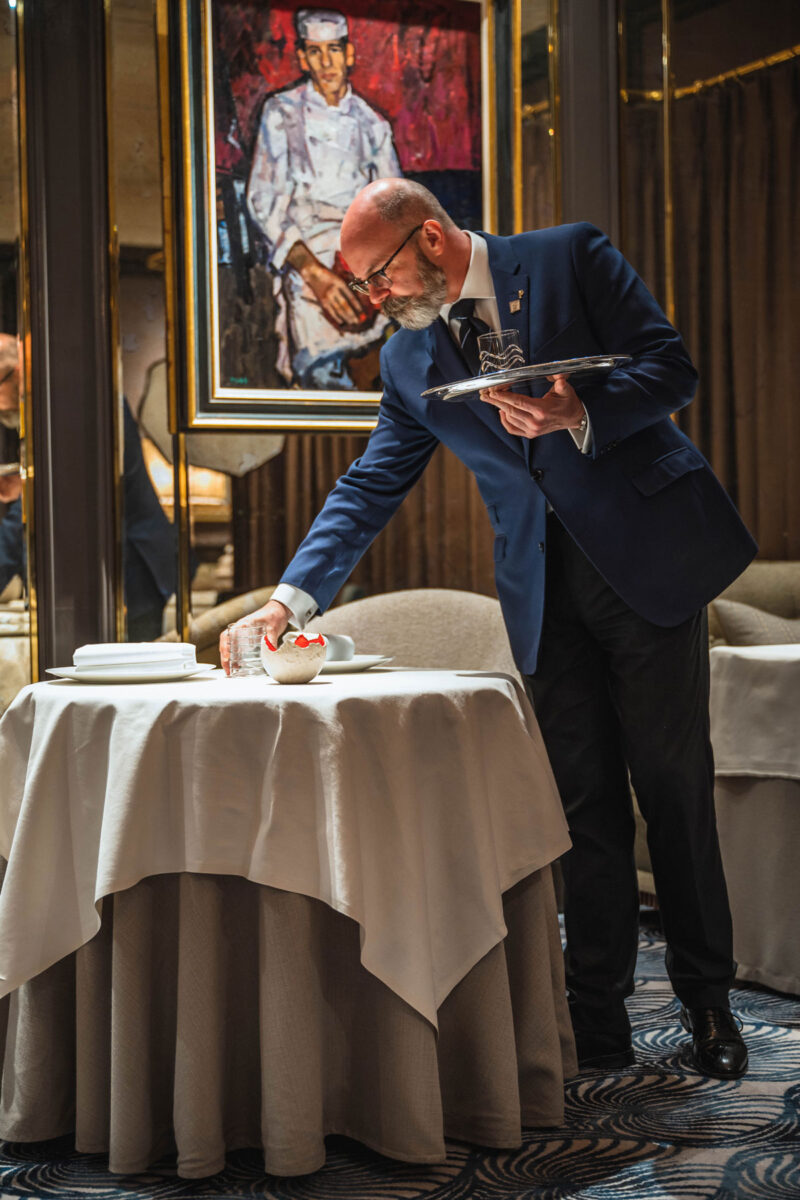
“Andrew wasn’t like that. Those guys, when it left the hot plate, it was job done. And actually they weren’t that interested in what happened to it from there onwards. What did you do with it? How was the service? They weren’t that tuned in. Whereas Andrew wanted to know everything. He had a much more complete understanding of what a restaurant experience could be. And he had a really invested opinion on service.”
It was just as well, as the degustation tasting menu and French terminology employed by the newly-opened Restaurant Andrew Fairlie weren’t overly familiar to customers in 2001.
Dale recalled: “Andrew hadn’t done a tasting menu at Devonshire. This was his opportunity to put something in place that he hadn’t done at Devonshire Gardens. Diners were coming in and going ‘how does this work?’ Genuine confusion. And there was a lot of conversation and a lot of description. A fair few dishes were from the classical repertoire and with French terminology. Year one, two, three, I spent a lot of time explaining, giving a bit of colour.
“Fast forward to now and is there a restaurant you’re going to go into that doesn’t offer a tasting menu?”
The level of knowledge among customers has increased dramatically in the past two decades, said Dale.
He commented: “Diners’ awareness is massive now. You can travel the world gastronomically.
“In 2001 if you talked about Michel Guérard you had to read a magazine, buy his book or visit (the restaurant).
“Now if you say something about Michel Guérard, two minutes later you go back to the table to serve the next course and they’re on his website and have read all about it.”
While the food was obviously of paramount importance, Andrew and the team were determined to match it with the highest levels of service.
It was a commitment borne of separate unpleasant experiences in Andrew and Dale’s early careers.
“Diners’ awareness is massive now. You can travel the world gastronomically.”
“We both had memories, young in our careers, spending a fortune on memorable meals, often not partnered with the best service,” explained Dale.
“I ate at (a top London restaurant), three Michelin Stars, the absolute top of the tree in Britain, and I can remember every single bite of the meal that I ate. And I most strongly remember how badly they treated us. So dismissive.
“We were a table of five. Myself and another guy that worked front of house and three chefs. We were all earning a pittance. Cheap suits, cheap shoes. And they absolutely brought forth that feeling that we didn’t belong there. It was just so hostile, so combative.
“The food was everything I’d hoped it would be, but I left that particular meal thinking if I ever treat somebody the way we’ve been treated, then get out the game. I’m in the wrong profession.
“And that cemented a lot of my thinking about how I do my job.”
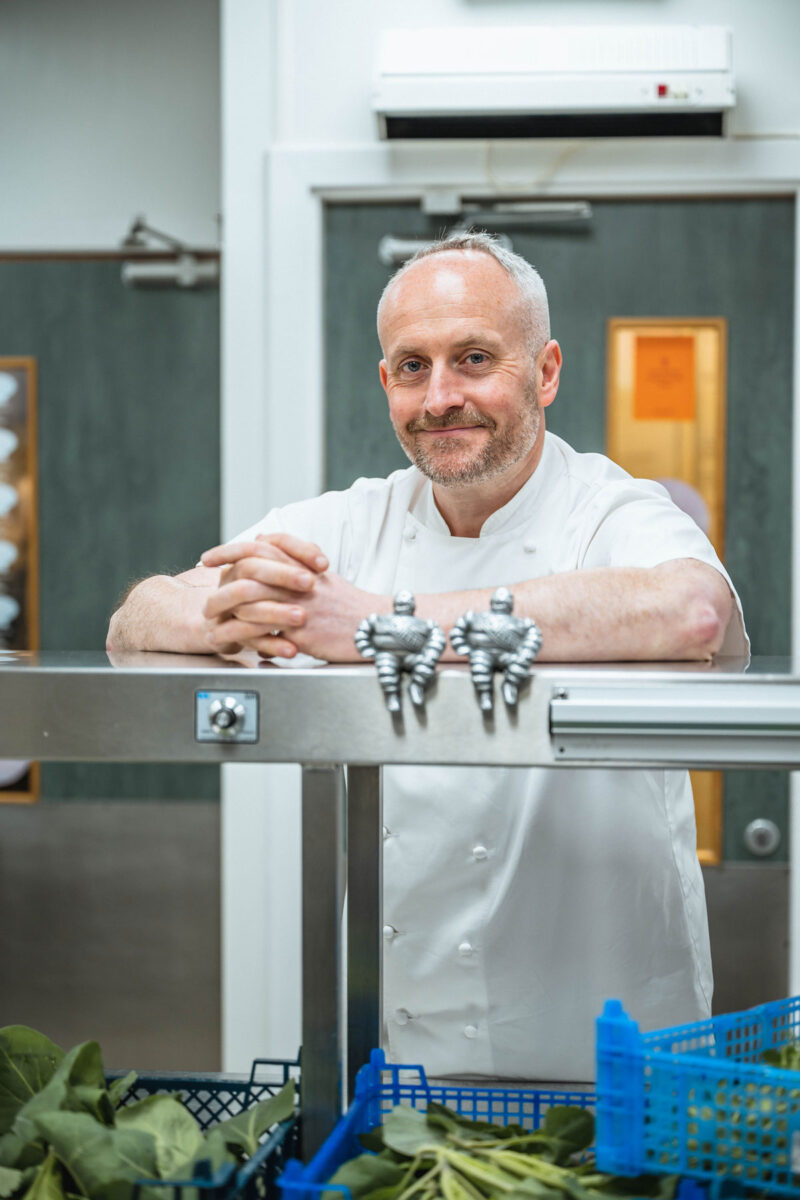
The approach to wine, too, was much friendlier than might have been the case in some other fine dining restaurants.
Original sommelier Johnny Walker was from the east end of Glasgow and prided himself on serving wine with more than a dash of personality.
“It shouldn’t exclude anybody. And Johnny was the perfect example of that in wine,” said Dale.
“His knowledge was amazing, but it was packaged in a way that you wanted to listen to him talk about wine, as opposed to feel belittled by it.”
Although Walker left the business after a couple of years, Dale said the restaurant’s current sommelier, Frenk Trouw, shares some of the same qualities as his predecessor.
“The biggest pleasure in wine is the drinking of it with the right food and in the right company,” said Dale.
“And it’s making sure that our guests get that, rather than somebody looking down their nose and talking vinification techniques. It’s got to be a pleasure.
“And where we are now with Frenk, we’ve probably got as close to what a diner would have experienced in the first couple of years with Johnny – loads of laughter, loads of fun, loads of passion. No haughty ‘you must drink this’. Drink the best you can drink. Let us find the best you can drink – whatever your budget we’ll find the best for you to improve your meal.”
From day one, the vaunted Michelin Star was the benchmark the restaurant was aiming for.
However, Dale stressed that the team weren’t ‘chasing’ a Star, per se.
“Setting the restaurant up, there was a desire to cook at a high standard. A standard other people maybe could only aspire to,” he said.
“Michelin was our shorthand for that. But even then, right from the start, there was a feeling from the team and from Andrew that if we didn’t get a Star but we were cooking the food that we were loving and our guests loved it… chasing a Star was never part of the deal.”
“Andrew was different to any of the chefs I’ve worked with. There was no aggression.”
Fortunately it wasn’t a conversation that lasted long. Restaurant Andrew Fairlie earned a Michelin Star within six months of opening its doors, adding a second Star a few years later, in 2006.
By then, the focus had tightened on Scottish produce, with the team leasing a garden a short distance from the restaurant so that they could grow their own herbs and vegetables.
In 2024, Dale said the vast majority of the menu is sourced from within 50 miles of the restaurant.
It’s an approach that certainly seems to be working, with customers prepared to book months in advance for the chance to enjoy a meal.
And while the Michelin accolades are great to have, Dale insisted the team’s own high standards would ensure the restaurant’s food and drink was of the highest quality, regardless of Michelin.
“If something’s not right it doesn’t go out,” he said.
“We will be the first ones to criticise any error before it can get to a guest. I think the personality of the business would drive us for quality regardless. But having it rubber-stamped by Michelin is always good.”
Yet it hasn’t all been plain sailing. Far from it.
The Scottish culinary scene felt a collective loss in early 2019 when Andrew Fairlie passed away after a long battle with cancer.
In addition to his prestigious restaurant, he left behind a legacy that included the mentoring of many chefs and staff members, as well as a team that is absolutely committed to maintaining the standards he set.
Speaking to Dale, it’s clear the team thought the world of their former boss.
“Personality-wise he was a very different personality to most of the chefs I’ve worked with. There was always an aggression in those environments. There was always testosterone. And for somebody on the other side of the hot plate, often a threat,” said Dale.
“And there was none of that with Andrew.
“When you spoke to him he was softly spoken. I don’t think he would have described himself as particularly bookish, but he was an intelligent guy in a way that I’d not really come across with anybody else in that profession.
“My abiding memory of him was that he was a nice guy. He was considerate. He was thoughtful. But there was also a rod of steel that went through him. When you talked about continuity, consistency, quality, that was non-negotiable. It wasn’t a threat, but when you talked about ‘we’re going to do this’ you knew he was committed to it.
“And he was good for me. In the relationship I’m the hot head. I’m the one with the short fuse, the quick trigger. It was probably one of my worst features, personality-wise. And he removed the need for that. And I loved that – that he was having an effect on me, personality-wise, that was making me better at my job. Not because he was training me how to serve. He was allowing me to be a better version of myself. I’m eternally grateful for that.
“And you see that in everybody that he interacted with.”

















